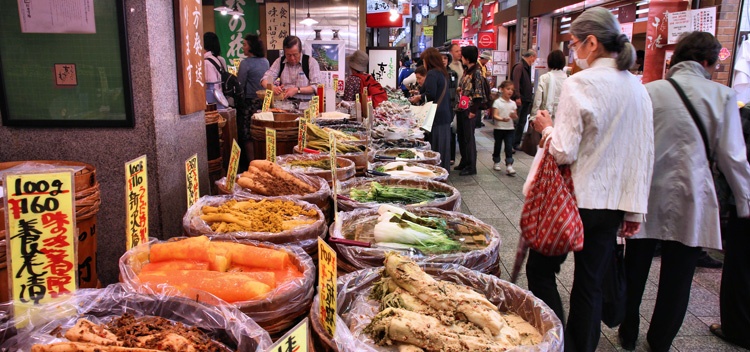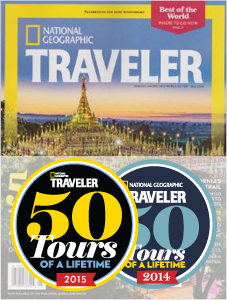
Many have heard that on Japan tours, credit cards are turned down pretty much everywhere you go. We used to recommend that our travelers bring all the money they’re planning on spending in Japanese currency, or that they buy currency from a money exchanger in the airport upon arrival.
This used to be more of a concern for Americans traveling in Japan until about five years ago. Around 2010, Japan finally began using more methods of electronic payment. Today, credit cards are accepted at most convenience stores, which is great news for travelers. Also, many more small shops take them in the cities, and prominently display the credit card sign/sticker on their windows.
This doesn’t mean that you should completely ignore bringing cash to Japan. Outside big cities, small shops that accept credit cards become more rare. Additionally, even in the cities, there are still plenty of small restaurants and shops that accept cash-only.
ATM’s
We strongly recommend that our travelers bring a card with an ATM Pin number. ATM’s are, similar to credit cards, becoming more widely used across Japan. A 7/11 convenience store is not an uncommon sight in Japan, and most of these have ATM’s that accept foreign cards. These ATM’s also usually have English as a language option.
Pasmo Cards
A common tool for travelers in Tokyo and other big cities is the ubiquitous Pasmo card. In fact, Global Basecamps provides these cards, with 2,500 yen already loaded on them, for all our travelers. These are used to pay for public transport in Tokyo, Osaka, Kyoto, and most other big cities. Different cities have different names for their cards (Manaca, Suisa, etc.) but they are all cross-functional. (One important limitation here is that Kyoto’s bus system still does not accept these.)
In addition, convenience stores, taxis and even vending machines will also accept these cards as payment. This makes them a pretty essential tool when traveling throughout the country. Machines to reload these cards are handily available, and offer instructions in English.












